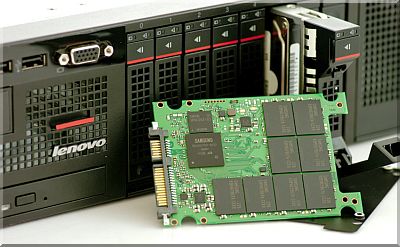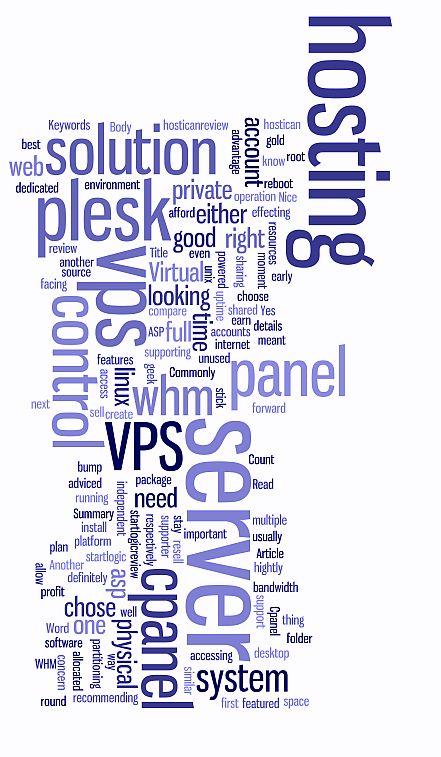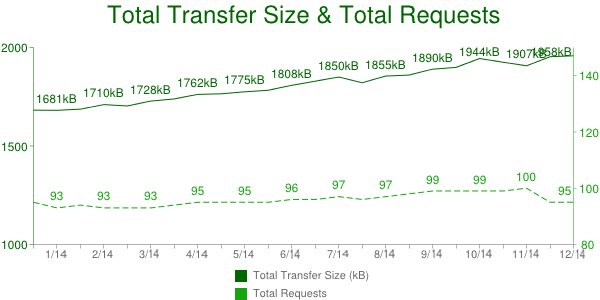Reading Time: 4 minutesWhat are we talking about in this creative original blog post? How about a freshly deployed “blank content” completely-isolated-new-private-virtual-internet-environment; just like a starter internet on a different planet.
In other words, imagine being on an internet where you and your friends are the only inhabitants of Mars but you are all connected through a common (and private) internet on the surface of that distant planet.
We think you should be able to deploy and command your own completely isolated Virtual Private Internet (VPI) or perhaps better marketing name Virtual Private Planet (VPP); just add users! )
In this new age of omnipresent internet surveillance/spying/intrusions/ddos attacks, etc and creeping and shadowy “Orwellian” state takeovers, we here at 4GoodHosting thought thinking-up a new service offering, as private and secure as possible, could be a big value-add overall for our customers.
So does the idea of a Virtual Private Server(VPS) still sound impressive?
Well, try this instead…
Virtual Private Internet(VPI) – or Virtual Private Planet (VPP – as private and secure as you and your friends and family living on another extremely distant planet and interacting over your own private internet). “Imagine” a virtual instance of an entirely other pre-configured “encapsulated internet” with almost no content stored in it, maybe just a couple of images and some started ‘hello world!’ webpages and templates and web builder programs.
What if all “content” and logfiles were deleted from this internet, with just open-source webservers and virtualization software (vps – virtual private servers, instead of physical ones) and applications, programming languages, and scripts left on it? And then compiled and condensed into a VPI/VPP container with extra starter terabytes of storage (deeply encrypted by the VPP container) available only to itself and using its own entirely unique ip address protocol?
As the whole container is encrypted other than its login sevice, so ,you would need to authenticate into, to get onto, that virtual private internet.
Inside it, or on it, you could only request webpages and emails and voice communications from the other users within that self-contained virtual internet.
Your ‘allowed-in’ VPI/VPP users can even pick their fantasy geographical location in your virtual fantasy world. Your users could even all pretend they were colonizing another planet. A surface map of Mars or Venus could be used instead of Earth in the VPI/VPP; as if there was a functioning internet existing on Mars or Venus. Your ip geolocation could point to a certain crater on the surface of mars, lol – now that’s real privacy!
And another user allowed in to the VPI/VPP could pick some other location on the red planet.
What we are suggesting is the next step in the thought process…
If you can deploy a virtual server on the internet, which is possible now, then you can also deploy a entirely self-contained virtual model of a virtual private internet… Just add
more users and more raw storage to your VPI/VPP with time. The VPI/VPP container itself virtualizes, in software, all the necessary data links of the Earth’s mother internet (high speed bitreams carried by wires/radio/light).
And all services would be free to users on the VPP. Free domain registrations (and they are all still available at first!, lol), free webhosting, free bandwidth, etc.
The whole idea is to set up a completely isolated virtual network all running within the equivalent of a secure impenetrable steel vault.
Anything done or said on that internet stays there. Like when people go to Las Vegas…
Many often like like to say “What happens in Las Vegas stays in Las Vegas…”
People log into the VPI/VPP from an encrypted tunnel connection somewhere on the main mother physical internet.
So we are proposing the idea of deploying new ‘blank virtual internets’ with an extra terabyte of starter raw data storage – with a FREE virtual hosting company in it.
Once in.. just maybe a dozen example websites exist, a free web hosting company like 4GoodHosting.mars with instant automated web server and even simpler hosting account deployments; so users can get started growing the VPI/VPP right away.
Clone websites from the main internet can be imported easily of course through the user’s secure tunnel connection – so setting up an array of new websites within the VPI/VPP can be made easy.
Somebody could purchase a VPI/VPP from us and give out free access to only and all women, for example; therefore you could start a new private internet with 99.9% just females on it – perhaps appropriately named the Venus VPI/VPP. So when one logs into the equivalent of Skype on that VPI/VPP, they can only find or talk or video chat with females that exist there; like lady’s restrooms are partitioned.
Popular open source applications can be included on the VPI deployment. And organized by the free automatic web hosting company on it; all the popular software to enable a whole internet of things could come pre-included with the the VPI/VPP.
Basically you would have a view of a computer desktop once in the VPI/VPP, running Linux perhaps with its own virtual local storage. To create yet another layer of complete isolation, it could use some random and unique ip-protcol as an option, making your VPI completely unhackable from anycreep or anything outside it.
A VPI/VPP customer would be mainly billed by us just how much raw storage the VPI/VPP grows into plus how many parallel processors of computational power their VPI/VPP is using on a daily average.
Since everything on the internet is just application code/services or otherwise digitized content, all the content can be all erased just leaving behind the applications and functionality; it is just a matter of having enough required private storage.
A virtual private internet for just 6 year olds, just 7 year olds, just 8 year olds – it’s all possible; for clubs or companies, counties, societies…
The wires and cables between servers and users just become virtual software wires, all ethernet cable is virtualized in the VPI/VPP container that operates the whole thing, forming a completely virtualuslized and extensible/scalable transport (wires/radio/light links) OSI layer.
Artificial ping delays can be included if desired. Otherwise all VPS servers communicate instantaneously within the VPI/VPP with just always one packet “hop” to each server in the environment as all the various physical data links are virtualized in software.
This is what the VPI outer container does. It is the virtualization of all physical hardware (plus all commonplace non-commercial internet applications) necessary for a new blank internet instance.
Too much processing power would be required? A standalone i7 processor could probably support 100 or 1000 single VPI/VPP instance users, while running all their webservers if they each have their own websites on that virtual private internet.
So do you understand what is being talked about here? If you are connected in through secure tunnel and RDP (Remote Desktop Protocol) into a particular VPI/VPP , then you can only browse websites that exist within that VPI/VPP and only email and chat with or video conference with users on that virtual internet.
Right now there are about 4 billion or so users on the main physical internet. The real physical transport layer all over the Earth makes this original internet possible.
But all the physical connections between servers could virtualized in software to where these is only a 1 packet ipv6 “hop” from virtual webserver to virtual webserver within the VPI/VPP completely isolated little virtual internet cloud; completely isolated from the main internet.
When you log in as a user of a VPI/VPP it would be much like booting up another computer – just like how you power on and stare at the screen of your computer to be on this main/mother internet. Once you are into your computer in the VPI/VPP, you cannot browse regular physical earthly websites unless they are physically cloned into the VPI/VPP already – you can only browse virtual webservers that other real users of the VPI/VPP have setup and/or continue to import or develop.
Could bitcoins be used inside VPPs? Probably not…. We aren’t quite sure if the currency would hold any weight on ‘Pluto’ for example. However as king or queen of your own VPP you could probably some kind of funny money to your inhabitant users of some sort, if bitcoins are non-transferable to other planets! Interesting thought there though.
We think we should also also offer access to the very first Mercury VPP, then a Venus VPI , skipping Earth VPP since we have an internet on the Earth already, Mars, Jupiter – for people wishing to pretend they live use an internet located on one of those planets. Nobody from the Jupiter VPP could ever email to or access any data or server directly or spy into the Venus VPP. Two people logged into separate VPI/VPPs would need to minimize the windows displaying the isolated planetary VPP and could only interact directly over the main internet.
People can pretend they live and work an interact on a Martian internet which would naturally be a completely isolated internet from this mother one here on Earth.
There would be no way to email anyone on Earth if logged in as a user on the Mars VPP; only email to other “Martians” is possible – to exemplify this concept…
As nobody or no agency on this mother internet on Earth can hack into or read/save/scan any email communications to each other conducted on Mars theoretically – as they have completely independent “atmospheres” and “planets”. Just like real puffy white atmospheric clouds from Earth do not mix with clouds on Mars – as it is impossible – any data sharing between a VPP and the mother internet would be made impossible; especially with an extra layer of entirely different ip protocol addressing (random key variations of ipv6, for example – the various blocks of different bits defined to be in different locations) different from the mother internet as an additional layer of data isolation.
So how will can anyone exchange email with anyone else?
Again only VPI/VPP users on the same VPP instance container can email each other.
A benefit is that the communication system from one VPI/VPP is completely isolated and different from from the communication protocol of another VPI/VPP and the mother internet itself. Your emails to trusted recipients become entirely private and secure again.
In simplest terms, we can model a virtual internet on another planet. If there really were Martians and they had their own internet, we can’t email them or hack into their emails from Earth – impossible.
All emails between users are entirely contained in the VPI or VPP (Virtual Private Planet) container. Those emails can never be intercepted by anybody. There is no secretive spy agencies or overreaching corporations possible inside a VPP. There would be no physical wires connecting webservers to wiretap!
Basically we can model a functional internet entirely run in software using ip packet routing that is always just one “hop”between VPS’s within the VPI/VPP. On this physical internet, there are like 30 physical “hops” between two servers perhaps. But in a VPI/VPP deployment – all the physical connections (wires/radio/light) are made virtual – no long wires needed between webservers – like two VPSs sharing the same processor and memory bus – there probably is a way each can communicate to each other without bits having to go out and back in the same network interface card (“nic’) and ethernet cable.
And that is all that is needed to create the VPI container functionality itself – virtual NIC cards and virtual packet routers and virtual wires rather than real ones – a completely virtualized functional internet physical transport layer.
Two separate VPI/VPPs’s don’t need to use the same ip protocol or packet structure or bit positions – as they will never communicate between environments; just like Martian air or clouds doesn’t ever mix with Earth air/clouds – the are completely separate and isolated atmospheres
Let’s call the extra security concept random key(structure) ipv6 protocol variations – it is unhackable because the an external intruder will not even have an idea of the VPI/VPP packet structure The packet structure it could be completely randomized upon VPI /VPP deployment as long as it is all homogeneous within the VPI/VPP instance itself. Just like we would have no idea even how to start hacking into some alien planet’s internet – even if we could somehow reach it or tap into it from afar.
So again all a VPI/VPP container does is replace all the physical data links (wires/radio/light) of this mother internet system with internal virtual highspeed bitstreams instead. You could randomly configure your own data/packet protocol so VPS’s running in the VPI container can understandably send packets back and forth to each other. Virtual NIC cards, virtual packet routers, virtual wires…. all within the same VPI/VPP, all hooked up with 0ms(zero) ping response time between all vps’s in the VPI/VPP.
The only thing on the ‘surface’ of a VPI/VPP is the user login/authentication screen with upon successful authentication boots your Linux desktop and then you view that computer screen over secure remote desktop protocol and viewed on the screen in front of your eyes. That tunnel connection has to be just as secure so nobody on the mother internet can view or take over your desktop being streamed to you from the VPI/VPP.
The VPI/VPP. wrapping container itself has a rather simple function – to route and deliver privately(randomly) structured ipv6 packets between VPS’s existing in the same ecosystem/atmosphere/planet. The container replaces/emulates the lowest physical transport layer of the OSI model (wires/radio/light) of the physical mother internet. All the other software that already exists which operates this existing internet would run right on top of all those virtual wires/links within a VPI/VPP instance/container – (Just as secure as Earth is its own separate container or Mars is its a completely isolated atmospheric container.)
Domains name registrations would also be free, naturally, within each VPI/VPP, and all available at first, lol; they can be registered, naturally, logically, for free, as long as they are utilized for something and the VPI container system could also help automatically administrate that. A VPP creator could make up their own TLD’s too – you can choose your own principle TLD for your VPP, such as (domainname).mars .
Did you read all over the above? Would you like to create your own new “planetary” internet? You could make up your own name for your own fantasy planet – it doesn’t have to be one from our solar system; if you think others would like to be an internet pioneer on it with you.
We don’t have the VPI/VPP container software developed yet but we think the code for a the VPI/VPP wrapping container shouldn’t be that extensive; but rather concise – just a lot of similar processing for a purely software mechanism to move ipv6 packets from one VPS to another in the same VPP network ecosystem. The software would model and replace the entire diversely connected physical(hardware) network like the one connecting all these computers on the mother internet that are connecting us right now.
What do you think? We’d need your help to get the word out about this idea so very skilled programmers could be recruited or volunteer to help create the first VPI/VPP for all of us to potentially privately and securely enjoy – to create our own entirely isolated worlds for us to interact within; without any possibility of our conversations or surfing habits being archived or being spied upon.
So tell others who might be able to help make this idea into future 4GoodHosting product offering. The most we offer in this direction so far is our Canadian Virtual Private Servers (link to VPS page). Impossible? Please tell us your thoughts or questions about this next-generation-internets idea, at support@(thishostingcompanydomainname).com
more info:
Also, SSL certificates would not be needed in a VPI as transport links between virtual web servers would no longer need to be encrypted
http://en.wikipedia.org/wiki/Software (protocol) From Wikipedia, the free encyclopedia
In computer networking, a softwire protocol is a type of tunneling protocol that creates a virtual “wire” that transparently encapsulates another protocol as if was an anonymous point-to-point low-level link.[1] Softwires are used for various purposes, one of which is to carry IPv4 traffic over IPv6 and vice versa, in order to support IPv6 transition mechanisms.[2]
So an Ethernet software cable can be modeled and programmed as a method in a programming language, like Java for instance – to replace Ethernet cable that would normal allow two webservers or vps’s to talk to each other.
Using softwires in between VPSs on the same physical server environment allows websites to interact, without anything plugged into the box besides a keyboard and mouse. Softwires therefore make the VPI/VPP container possible.
It would certainly be the most ambitious software project yet since the creation of Earth’s original mother internet.

















